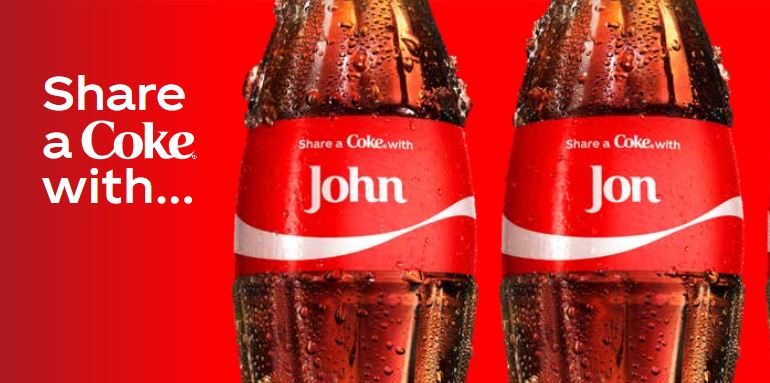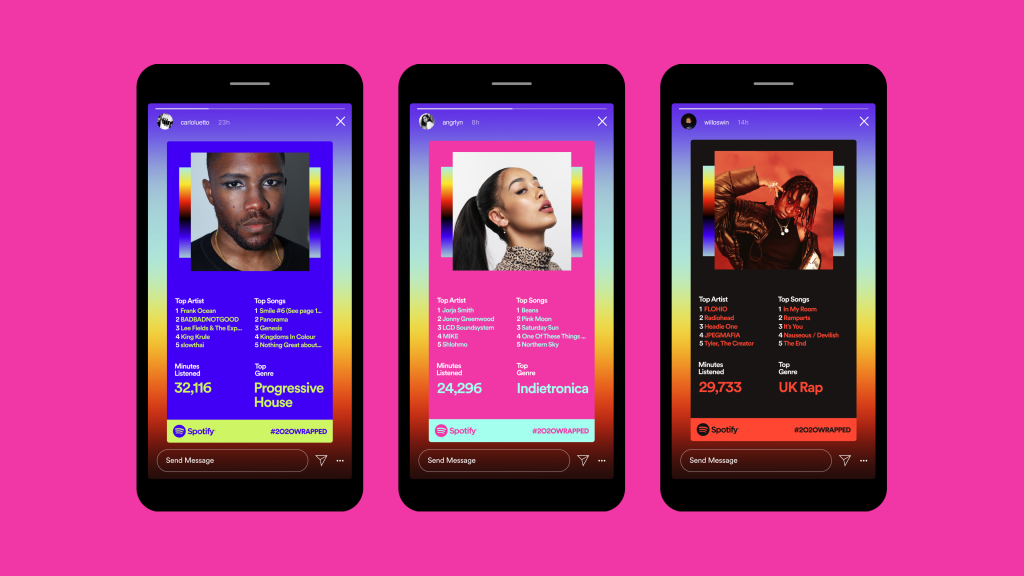Content marketing is a popular long-term strategy utilised by digital marketers that focuses on the creation of valuable and engaging content for a specific audience. Correct implementation of this strategy will allow brands to achieve a range of things, including improved brand awareness, customer trust and loyalty, and ultimately generate more sales.
From a consumer perspective, content marketing builds a feeling of authenticity from a given brand and allows us to feel like we buying more than just a product. We are instead buying into a set of values, a lifestyle, and connecting with the brand’s personality. One technique that brands are using to enhance their content marketing campaigns is the use of personalisation. Personalised content uses specific consumer information to create a distinct, unique experience between an individual and your brand.
One of the most successful examples of this is the ‘Share a Coke’ campaign, run by Coca Cola in 2011.

This campaign is renowned for being one of the most successful marketing campaigns this century. With the aim of getting their audience to reminisce and think about sharing their product with their friends and family, Coca Cola used the top 150 most popular names in Australia and printed them on thousands of bottles to be distributed across the country. The campaign was so loved by their target audience that they were receiving thousands of requests for more names to be printed, and Coco Cola also allowed customers to personalise their own bottles via their website. The campaign earned a total of 18,300,000-plus media impressions, traffic on the Coke Facebook site increased by 870% and the Facebook page grew 39%.
Coca Cola’s ability to create a content marketing campaign that told a story, built a community and had a personal connection with each consumer was the reason for its success.
Another great example of personalisation being used to connect with an audience and boost interaction is Spotify’s annual end-of-year campaign, ‘Spotify Wrapped’.

This campaign uses data from each users Spotify profile to curate videos, infographics and charts about their music taste over the past 12 months that users can share. They can see a range of statistics, including if they were in the ‘top 3%’ of a given artist’s listeners, and what music genres they listened to the most. Launched in 2017, Spotify’s campaign is a great example of how personal data can be utilised to create content that is personal and connects with their audience in a unique way. This campaign also holds an element of symbolic value, as Spotify users can show others how unique their music taste is or share their music preferences with like-minded people.
Personalisation is content marketing adds another layer to the value felt by each consumer. The connection to the product or service is strengthened, and consumers feel more important (and consequently loyal) to a brand if they felt seen and understood. Content marketing can be an extremely effective way to boost long-term brand awareness and trust, but in a competitive marketing environment brands must be able to find ways to connect with each customer on a personal level.
Leave a comment